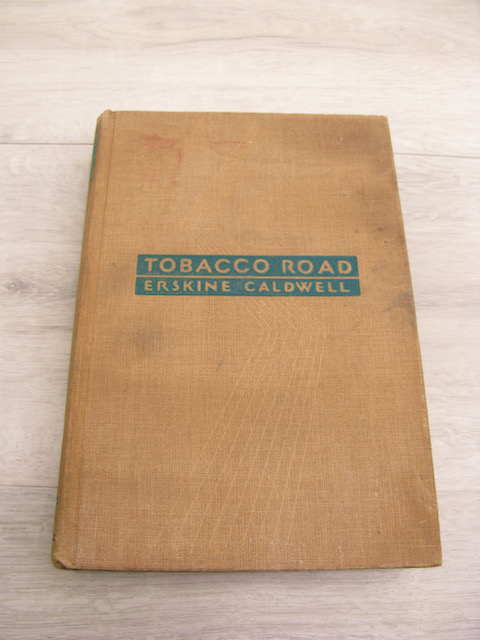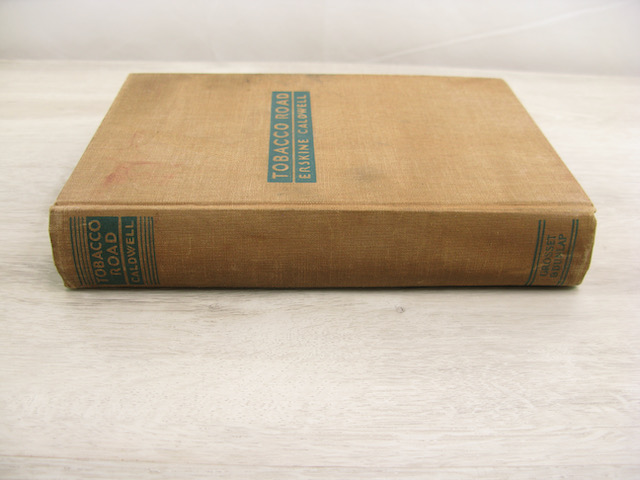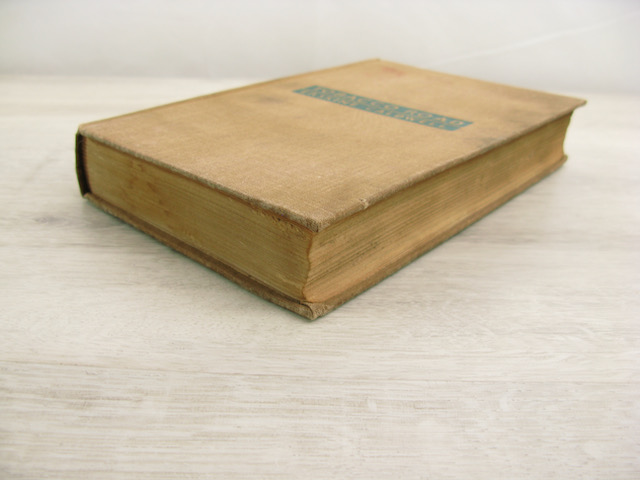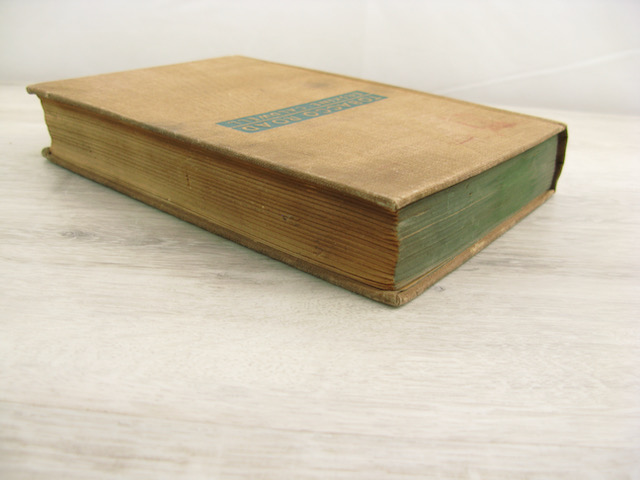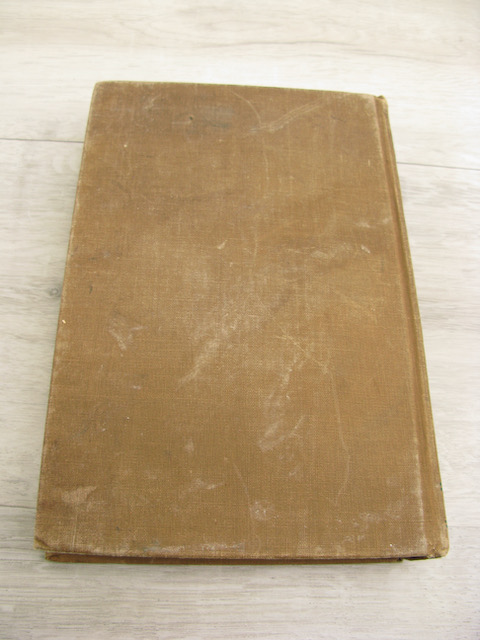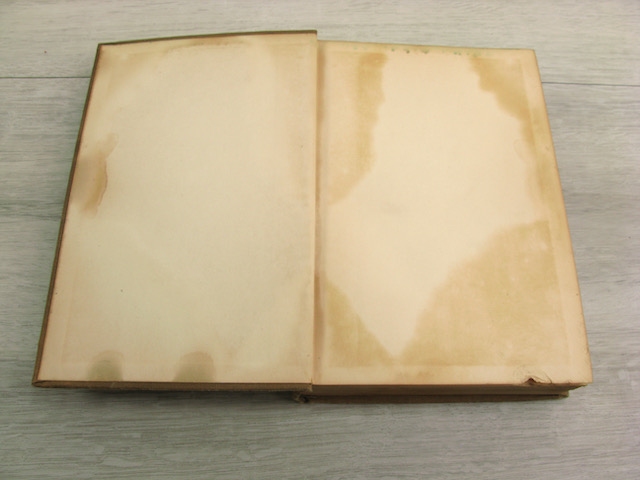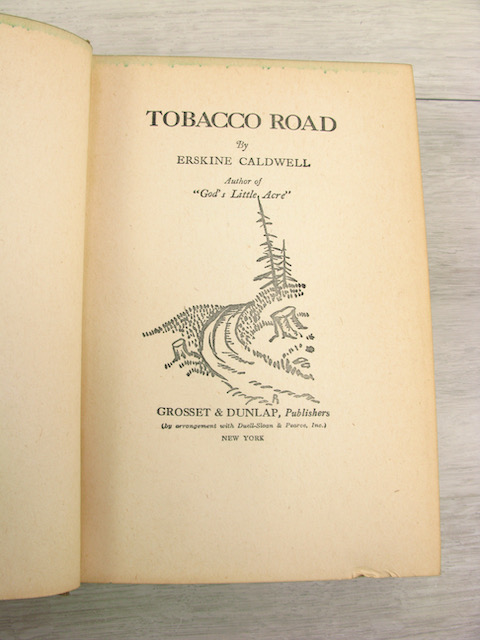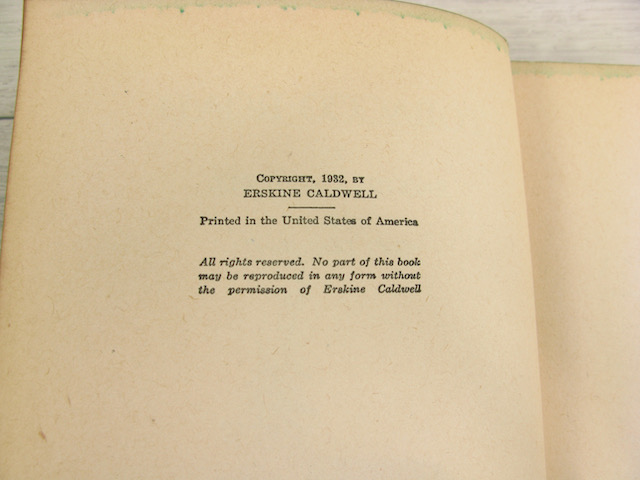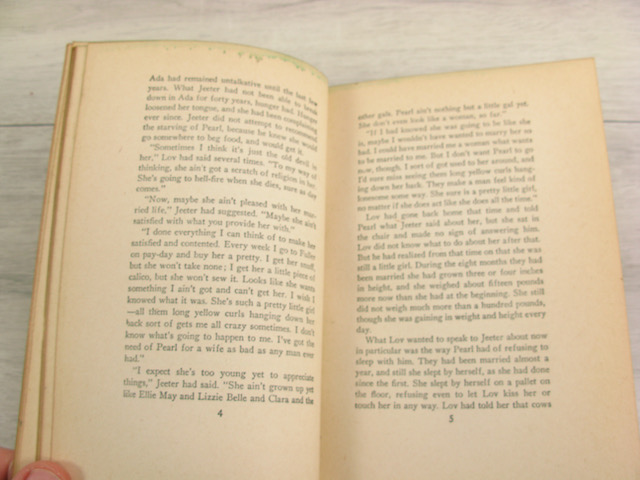****
GOOD CONDITION
ADULT OWNED / SMOKE FREE
ANY QUESTIONS PLEASE INQUIRE
GOOD CONDITION
ADULT OWNED / SMOKE FREE
ANY QUESTIONS PLEASE INQUIRE
Tobacco Road Erskine Caldwell 1932 HC 1st Ed. Southern Gothic America Historical Fiction - R13
The classic novel of a Georgia family undone by the Great Depression: “[A] story of force and beauty” (New York Post). Even before the Great Depression struck, Jeeter Lester and his family were desperately poor sharecroppers. But when hard times begin to affect the families that once helped support them, the Lesters slip completely into the abyss. Rather than hold on to each other for support, Jeeter, his wife Ada, and their twelve children are overcome by the fractured and violent society around them. Banned and burned when first released in 1932, Tobacco Road is a brutal examination of poverty’s dehumanizing influence by one of America’s great masters of political fiction.
Caldwell's novel told the story of the Lester family, poor Georgia sharecroppers who no longer farmed the land, but lived by whatever means possible. Caldwell's picture of the rural South challenged notions of the dignified and polite Antebellum South and depicted an image that was grotesque, violent, and morally bankrupt. Southern readers immediately found Caldwell's novel needlessly exaggerated and offensive, while Northern critics read his story as an indictment upon a failed Southern economic system in dire need of reform.
Set during the Depression in the depleted farmlands surrounding Augusta, Georgia, Tobacco Road was first published in 1932. It is the story of the Lesters, a family of white sharecroppers so destitute that most of their creditors have given up on them. Debased by poverty to an elemental state of ignorance and selfishness, the Lesters are preoccupied by their hunger, sexual longings, and fear that they will one day descend to a lower rung on the social ladder than the black families who live near them.
Caldwell's skillful use of dialect and his plain style make the book one of the best examples of literary naturalism in contemporary American fiction. The novel was adapted as a successful play in 1933.
Erskine Preston Caldwell was an American author. His writings about poverty, racism and social problems in his native South won him critical acclaim, but they also made him controversial among fellow Southerners of the time who felt he was holding the region up to ridicule.
Erskine Caldwell (1903–1987) is the author of twenty-five novels, numerous short stories, and a dozen nonfiction titles, most depicting the harsh realities of life in the American South during the Great Depression. His books have been published in forty-five languages and have sold tens of millions of copies, with God’s Little Acre alone selling more than fourteen million. Caldwell’s graphic realism and unabashedly political themes earned him the scorn of critics and censors early in his career, though by the end of his life he was acknowledged as a giant of American literature.
Dimensions: 8" x 5.5" x 1"
No dj
Some rubbing/roughing/stains on covers (see pics)
Pencil mark inside edge sheet (see pic)
Stain on edge sheets/head (see pics)
Thanks For Viewing
:)
..ooOO PLEASE SEE MY OTHER ITEMS FOR SHIPPING DISCOUNTS OOoo..
* INSURANCE (OPTIONAL) PLEASE INQUIRE *
